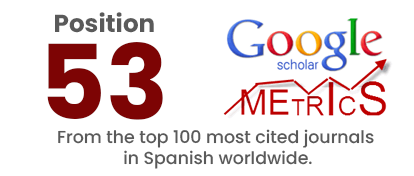Pedagogical strategies in the training of dental professionals: a systematic review
DOI:
https://doi.org/10.36097/rsan.v1i62.3477Keywords:
pedagogical strategies, dentistry, clinical simulation, problem-based learning, clinical competenciesAbstract
This study aimed to identify the pedagogical strategies reported in the scientific literature that have been implemented in the training of dental professionals between 2013 and 2024. A systematic literature review was conducted using academic databases such as PubMed, SciELO, and Google Scholar, applying the PRISMA methodology. An initial search yielded 80 articles, of which 18 met the inclusion criteria. The results indicate that strategies such as clinical simulation, problem-based learning (PBL), the use of videos, anatomical models, and virtual platforms have proven effective in enhancing practical learning, clinical reasoning, and student motivation. However, limitations were identified, including insufficient pedagogical training among instructors and the lack of systematic integration of these strategies into dental curricula. It is concluded that these innovative methodologies significantly contribute to the development of clinical competencies in Dentistry, and their continued incorporation is necessary, particularly in contexts where their application remains limited, such as in Ecuador.
Downloads
References
Ascencio, J. (2018). Evaluación de aprendizaje significativo y estilos de aprendizaje: alcances, propuesta y desafíos en el aula. Tendencias Pedagógicas, 31(2), 36–49. https://doi.org/10.15366/tp2018.31.001
Allen, T., O'Loughlin, M., & Croker, F. (2022). Teaching health promotion competencies in undergraduate dentistry training: A unique pedagogical approach. Health Promotion Journal of Australia, 33, 35-38.https://doi.org/10.1002/hpja.660
Ali, K. Z. (2018). Impact of early clinical exposure on the learning experience of undergraduate dental students. European Journal of Dental Education, 22(1), 89-96. https://doi.org/10.1111/eje.12260
Cevallos, I. P. M., Cuadros, E. A. M., & Díaz, P. (2024). Estrategias didácticas para el aprendizaje significativo y el desarrollo de habilidades prácticas en Operatoria dental, en estudiantes de Odontología. Revisión sistemática. Revista Social Fronteriza 2021 -2024 , 4(2). https://doi.org/10.59814/resofro.2024.4(2)180
Christiani, J. J. (2016). La simulación en la enseñanza en odontología. Una herramienta de aprendizaje para la seguridad del paciente y la calidad de atención. Revista de la Facultad de Odontología, 9(1), 1668-7280. https://doi.org/10.30972/rfo.911602
Costa, R. G. & Lojo, A. (2020). Operatoria dental: nociones para el aprendizaje. Universidad Nacional de la Plata. https://core.ac.uk/download/pdf/325984393.pdf#page=8
Elledge, R., Houlton, S., Hackett, S., & Evans, M. J. (2018). “Flipped classrooms” in training in maxillofacial surgery: preparation before the traditional didactic lecture? British Journal of Oral and Maxillofacial Surgery, 56(5), 384–387. https://doi.org/10.1016/j.bjoms.2018.04.006
Farag, A., & Hashem, D. (2022). Impact of the Haptic Virtual Reality Simulator on Dental Students. Psychomotor Skills in Preclinical Operative Dentistry, 12(1), 17-26. https://doi.org/10.3390/clinpract12010003
Flórez Ochoa, R. (2013). Estrategias de enseñanza y pedagogía. Actualidades Pedagógicas, 1(61). https://doi.org/10.19052/ap.2328
Hernández-Huaripaucar, E. M., & Yallico Calmett, R. M. (2020). El Aprendizaje Basado en Problemas (ABP) como estrategia didáctica innovadora en la enseñanza de la Anatomía Humana. Horizonte de la Ciencia, 10(19). https://doi.org/10.26490/uncp.horizonteciencia.2020.19.595
Newby, J. K. (2010). Simulation of medical emergencies in dental practice: development and evaluation of an undergraduate training programme. Australian Dental Journal , 55, 399–404. https://doi.org/10.1111/j.1834-7819.2010.01260.x
Khan, S. I., Kazi, F. M., & Asghar, S. (2019). Impact of Procedure Specific Videos in the Performance of Restorative Procedures by Pre-Clinical dentistry Students. Journal Of The Paskistan Dental Asociation, 28(4), 176-180. https://www.jpda.com.pk/wp-content/uploads/2019/11/Original-Impact-of-Procedure-Specific.pdf
Kolb, A. Y.& Kolb, D. (2017). Learning Styles and Learning Spaces: Enhancing Experiential Learning in Higher Education. Academy of Management Learning & Education, 4(2). https://doi.org/10.5465/amle.2005.17268566
Olmedo-Buenrostro, B. A., Banda, H. M., EncisoI, I. D., & Cruz, S. A. (2016). Desempeño estudiantil con el aprendizaje basado en problema: habilidades y dificultades. Revista Cubana de Medicina General Integral, 32(2), 290-299. https://www.medigraphic.com/pdfs/revcubmedgenint/cmi-2016/cmi162p.pdf
Rawekar, A., Jagzape, A., Srivastava, T. & Gotarkar, S. (2016). Skill learning through early clinical exposure: an experience of Indian medical school. Journal of clinical and diagnostic research: JCDR, 10(1), 1-4. https://doi.org/10.7860/JCDR/2016/17101.7022
Sadid-Zadeh, R., DDS, R. L., & BS, M. S. (2019). Effect of Fabrication Technique on the Marginal Discrepancy and Resistance of Lithium Disilicate Crowns: An In Vitro Study. Journal of Prosthodontics, 28(9), 1005-1010. https://doi.org/https://doi.org/10.1111/jopr.13014
Sánchez Villegas, A. E. (2017). Odonto Smart. Corporación Unificada Nacional de Educación Superior - CUN. https://repositorio.cun.edu.co/handle/cun/4843
Schwibbe, A., Kothe, C., Hampe, W., & Konradt, U. (2016). Acquisition of dental skills in preclinical technique. Advances in Health Sciences Education, 21, 841-857. https://doi.org/10.1007/s10459-016-9670-0
Mego-Ruíz, V., Juscamaita-Vega, C., de la Cruz Zuñiga-Dávila, J., Mayorga-Elías, P., Failoc-Rojas, V. E., & León-Jiménez, F. (2018). Nivel de motivación académica en estudiantes de ciencias de salud en una universidad privada de lambayeque-2013. Revista Experiencia En Medicina Del Hospital Regional Lambayeque, 4(1), 10-14. http://www.rem.hrlamb.gob.pe/index.php/REM/article/view/161/131
Núñez, J. C., Solano, P., González-Pienda, J. A., & Rosário, P. (2006). Evaluación de los procesos de autorregulación mediante autoinforme. Psicothema, 18(3), 353-358. https://www.redalyc.org/articulo.oa?id=72718304
Visbal-Cadavid, D., Mendoza-Mendoza, A., & Díaz Santana, S. (2017). Estrategias de aprendizaje en la educación superior. Sophia, 13(2), 70-81.https://www.redalyc.org/articulo.oa?id=413751844008
Zúñiga-Mogollones, M., Ferri-Sánchez, G., & Baltera-Zuloaga, C. (2018). Evaluación de la motivación académica tras implementar simulación háptica en estudiantes de primer año de la Universidad San Sebastián, en Santiago de Chile. FEM: Revista de la Fundación Educación Médica, 21(3), 137-141. https://doi.org/https://dx.doi.org/10.33588/fem.213.946
Downloads
Published
How to Cite
Issue
Section
License
Copyright (c) 2025 Jonathan Paúl Saltos Mendoza, Yoiler Batista Garcet

This work is licensed under a Creative Commons Attribution-NonCommercial-NoDerivatives 4.0 International License.


















